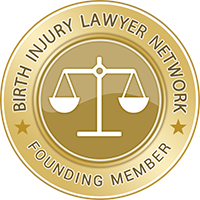Newborn Jaundice
Newborn Jaundice is the yellow discoloration of the babies’ skin and whites of the eyes due to having a high level of bilirubin in their bloodstream. Bilirubin is the yellow substance formed when the body breaks down old red blood cells. It is processed and removed by the liver from the blood.
Jaundice is a common condition among newborns. When the baby is still in the mother’s womb, the bilirubin in the baby’s body is removed by the placenta. However, when the baby is born, the process becomes the function of the baby’s liver. Under normal conditions, the bilirubin passes through the baby’s liver and is excreted as bile through the intestines. Once a baby is born, there is a normal increase of breakdown of its red blood cells. Jaundice occurs when the bilirubin build-up is faster than the baby’s liver in processing and removing the substance from the bloodstream. This means then that a baby’s liver must be well-developed so babies born premature are more likely to suffer from jaundice than babies born full-term.
Symptoms of Newborn Jaundice
A jaundiced baby will have a skin and the whites of its eyes yellowish in color. The yellow color discoloration will start on the baby’s face then moves down to the chest, belly area, legs, and soles of the feet.
Causes of Newborn Jaundice
A newborn jaundice may become severe if the baby is suffering from a condition that increases the red blood cells that needs to be replaced. Such conditions include:
- Abnormal blood cell shapes
- Blood type mismatch between the mother and the baby
- Cephalohematoma or the collection of blood underneath the scalp caused by a difficult delivery
- Higher levels of red blood cells, which is more common in small-for-gestational-age babies and some twins
- Infection
- Lack (deficiency) of certain important proteins, called enzymes
Some factors that makes it difficult for a baby’s body to remove bilirubin and which may lead to severe jaundice are:
- Certain medications
- Congenital infections, such as rubella, syphilis, and others
- Diseases that affect the liver or biliary tract, such as cystic fibrosis or hepatitis
- Low oxygen level (hypoxia)
- Infections (such as sepsis)
- Many different genetic or inherited disorders
Types of Newborn Jaundice
There are several types of jaundice and most common of which are physiological or what is known as normal jaundice, jaundice of prematurity, breastfeeding jaundice, breast milk jaundice and blood group incompatibility.
Physiological (normal) jaundice
This type of jaundice is mild and occurs mainly because of the immaturity of the baby's liver, which results to the slow processing of the bilirubin. It appears at 2 to 4 days after the baby is born and generally disappears within two weeks.
Jaundice of prematurity
This is the type of jaundice that is common among premature babies. Being premature, this means that their liver is underdeveloped and thus cannot effectively excrete the bilirubin from the body. To avoid complications, treatment should be done at a lower bilirubin level.
Breastfeeding jaundice
This type of jaundice is not caused by the breast milk so it should not be confused with breast milk jaundice. It occurs when the baby is not getting enough breast milk because of difficulty in breastfeeding such as slow production of milk from the mother.
Breast milk jaundice
Unlike breastfeeding jaundice wherein the cause is difficulty in breastfeeding, breast milk jaundice may be caused by substances produced in the mother's breast milk that can cause the bilirubin level to rise. It normally occurs after the first 3 to 5 days and improves within 3 to 12 weeks.
Blood group incompatibility (Rh or ABO problems)
If the mother and the baby have different blood types, the mother may produce antibodies that destroy the baby’s red blood cells and creates the sudden build up of bilirubin in the baby’s body. This is immediately noticeable on the day or a day after the baby is born.
Treatment, prognosis and complications with Newborn Jaundice
Medical intervention is normally not needed in mild or moderate jaundice as the baby’s liver will eventually take care of the excess bilirubin. A baby may need to undergo a phototherapy if he exhibits high levels of jaundice. More frequent feedings of breast milk or supplementing with formula may also help unless the jaundice is caused by the breast milk. A blood exchange may be needed for rare cases to give the baby fresh blood and remove the bilirubin.
Prolonged severe jaundice otherwise known as hyperbilirubinemia may lead the baby to having kernicterus, a brain damage caused by high levels of bilirubin. Other complications are cerebral palsy and deafness, among others.
Find an Experienced Birth Injury Attorney in your Local Community
 Find A Lawyer in Columbus, OH
Find A Lawyer in Ohio
Find A Lawyer in Any State
Find A Lawyer in Columbus, OH
Find A Lawyer in Ohio
Find A Lawyer in Any State
